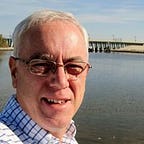In Search of a Mathematical Reality — Siméon Denis Poisson
Siméon Denis Poisson spent his career trying to capture the physical world in a mathematical formula. Poisson was a math prodigy whose talents were recognized as a student at the Ecole Polytechnique. Pierre-Simon Laplace recruited Poisson to join his private research lab south of Paris, the Society of Arcueil, which became a training ground for France’s leading young scientists at the beginning of the 19th century. It was Laplace’s ambition to make mathematics the basis of the physical sciences, as he had done for astronomy with his masterpiece book Mécanique Céleste. Poisson picked up where Laplace left off, and made important contributions in a number of fields, including statistics (Poisson distribution), diffraction of light (Poisson spot), the diffusion of heat, and material science (Poisson ratio).
Poisson was a loner with an aptitude for solving puzzles. He spent his career trying to build a coherent understanding of the physics underlying various phenomenon by working from curious bits of information obtained from observation and experiment. Poisson spent much of his time composing theories to explain how physical forces, heat, electricity and magnetism are distributed in matter. A mathematician by temperament and profession, Poisson did not test his theories by performing experiments; instead, he cast his theories in terms of mathematical equations and compared to see whether his calculations conformed to the observed phenomenon.
The mathematical physics pioneered by Laplace, Poisson and others provided science with a powerful tool capable of seeing beyond the limits of empirically-established fact. However, Poisson’s voracious appetite for puzzle-solving and standoffish demeanor were a source of annoyance. Colleagues often felt Poisson figuratively peering over their shoulder, ready to pounce if their research uncovered an interesting puzzle for Poisson to amuse himself with. Fourier remarked in exasperation that “Poisson has too much talent to apply it to the work of others.” Ultimately, Poisson failed in his effort to reduce physical reality to a mathematical equation. This remains a dream that scientists continue to pursue.
Poisson summed up his career by saying “Life is only good for two things; to do mathematics and to teach it.” Simeon Denis Poisson is one of the 72 scientists and engineers named on the Eiffel Tower.
